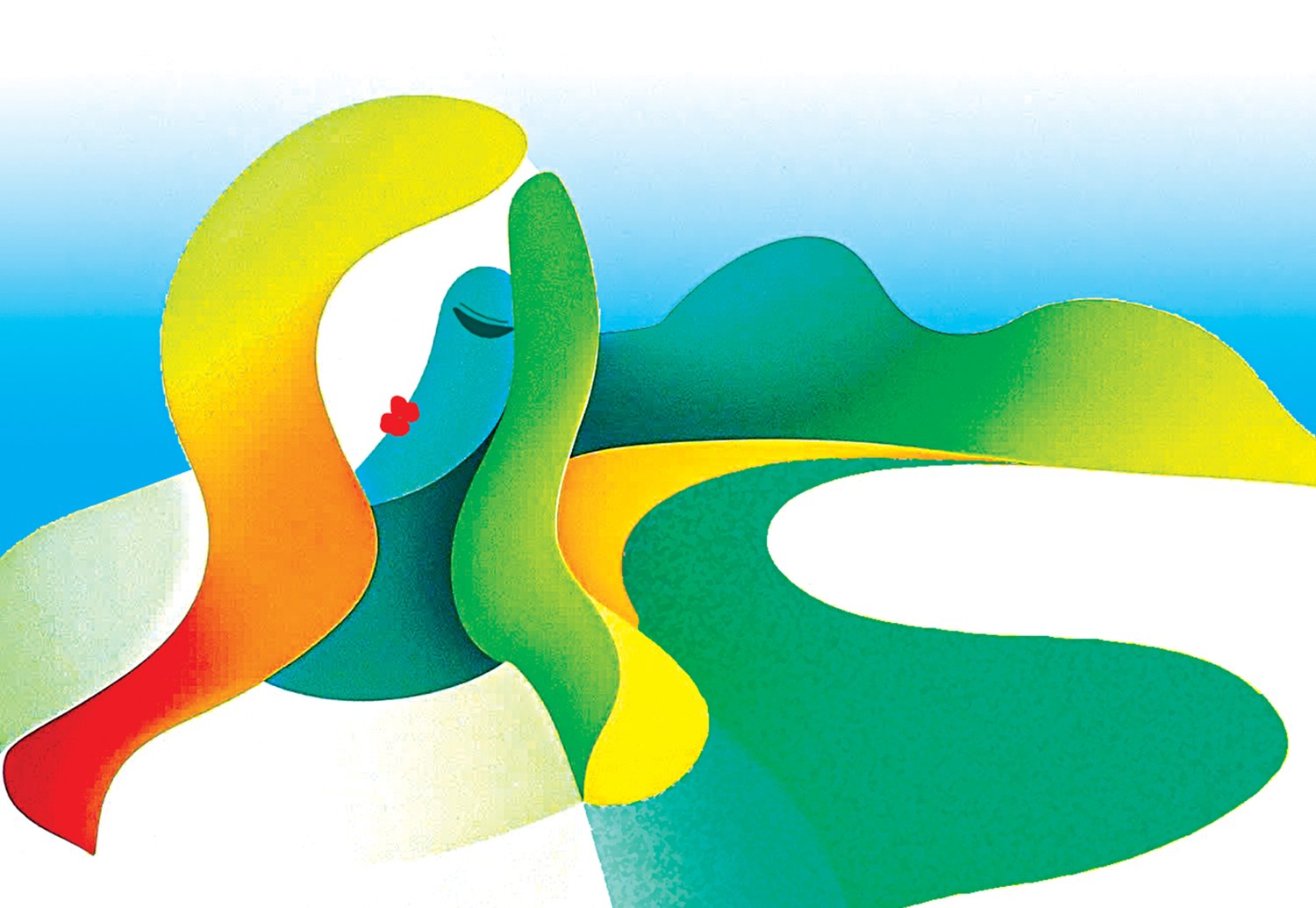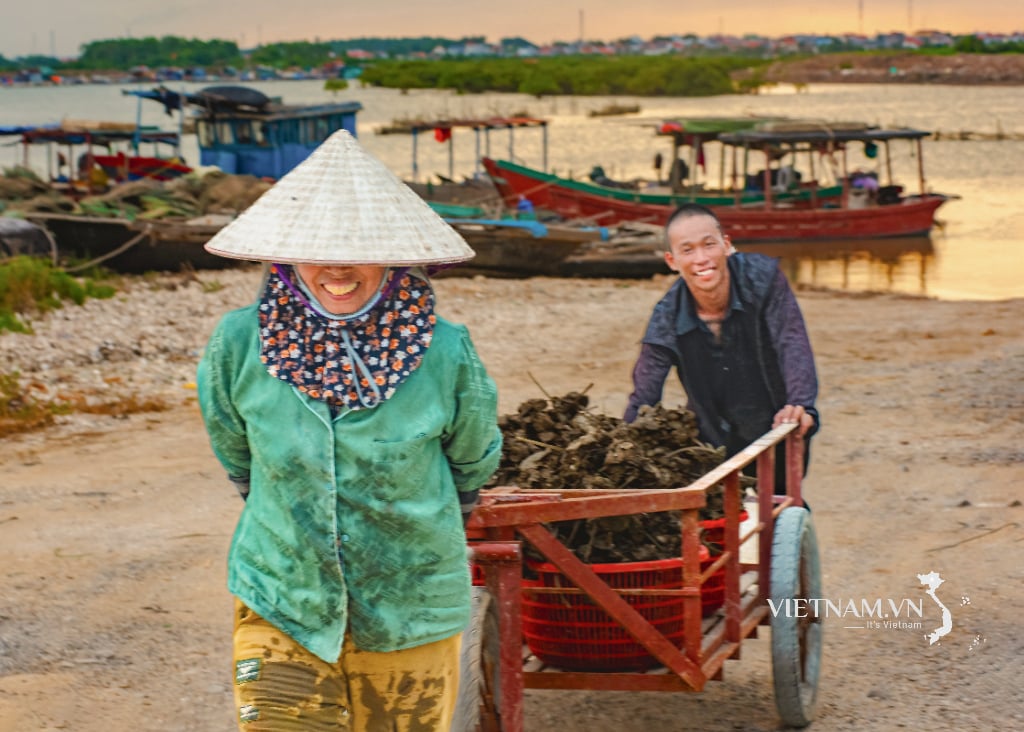Fifteen years of marriage, Hanh once thought she could hold onto that home, even though it was as shaky as a bamboo bridge over a small canal. Tam, her husband, wasn't a bad man. It's just that he harbored unpredictable fits of anger. On nights when he was drunk, his words were as sharp as knives, cutting into Hanh's heart. She endured it, for the sake of her two children, for the dream of a complete family she had envisioned in her youth. But then, there were days when Hanh looked at herself in the mirror, seeing her eyes sunken, no longer recognizing herself. "Who am I living for?" That question lingered, like a fish out of water, struggling endlessly without escape.
 |
The day Hanh signed the divorce papers, she trembled, not out of fear, but because of the strange feeling of choosing herself for the first time. Tam looked at her, his eyes half angry, half surprised. "Do you think you can raise two children?" he asked, his voice full of challenge. Hanh didn't answer. She just silently hugged her two children—ten-year-old Ti and seven-year-old Na—to her chest. "Mom will be able to do it," she said, not to Tam, but to herself.
On the day of the court hearing, Hanh was looked at as if she were a reckless person. "A forty-year-old woman, leaving her husband and raising her children alone, how can she possibly manage?" the neighbors whispered. Hanh only smiled faintly. She knew the path she had chosen wasn't paved with roses. But she also knew that staying in a marriage where love had faded, leaving only arguments and tears, was the cruelest thing for both her and her children.
Hanh opened a small grocery store by the river. In the mornings, she woke up early, cooked breakfast for her two children, took them to school, and then busied herself with buying and selling goods. Some nights, she was so tired she just wanted to lie down on her old bed, but the laughter of Ti and Na from the corner of the house would pull her up. Ti was quick and helpful, assisting his mother with setting up the store, while little Na liked to sit beside her, telling stories about school. These small, heartwarming moments were like sunlight filtering through the leaves, soothing the scars in Hanh's heart.
She remembered one time Na asked, "Mom, why aren't you with Dad anymore?" Hanh stopped what she was doing and looked at her daughter. Na's innocent eyes choked her up. "Your father and I used to love each other, but sometimes, loving each other without understanding only hurts both of us. I chose to stay with you and Tí, so you can grow up in a home full of laughter," she said. Na nodded, seemingly understanding, yet not quite. But from then on, the little girl hugged her mother more often, as if afraid her mother would disappear.
Life for the mother and her two children wasn't easy. The money from the grocery store was barely enough to cover living expenses and buy books for her children. But she was content. She no longer had to live in fear, no longer had to count sleepless nights because of harsh words. She learned to grow vegetables behind the house and made her own fish sauce to sell. Every afternoon, she would sit and watch the river, feeling as light as a cloud. The river flowed on, like her life, never stopping, no matter how many storms it weathered.
One day, Tí brought home a certificate of merit from school. He stood before his mother, shyly saying, “Mom, I got an excellent student award. When I grow up, I want to open a really big shop for you.” Hạnh smiled, stroking her son’s head, “All I need is for you and your sister to live happily and well. That’s my biggest shop already.” That night, she sat down to write in her diary, something she had started doing since her divorce. “Hạnh, you did it. You not only raised your children, but you also nurtured their dreams.”
The riverside neighborhood gradually became accustomed to Hanh's strong image. People no longer whispered about her, but began asking her how to make fish sauce and grow vegetables. One young neighbor even said, "Sister Hanh, I really admire you. You're so strong all by yourself." Hanh just smiled. She didn't see herself as strong, only as living true to herself.
The river still flows, carrying away the old days, and the old pain. Hanh stands on the porch, watching her two children play. She knows that divorce is not the end. It is a beginning, a path she has chosen to preserve peace in her heart and smiles on her children's faces.
TRAM AN
Source: https://baokhanhhoa.vn/van-hoa/sang-tac/202506/dong-song-van-chay-1811d6d/




![[Photo] Golden season of organic farming under the canopy of the vast Mang Den forest.](/_next/image?url=https%3A%2F%2Fvphoto.vietnam.vn%2Fthumb%2F1200x675%2Fvietnam%2Fresource%2FIMAGE%2F2026%2F01%2F24%2F1769247398190_ndo_br_cam-15-jpg.webp&w=3840&q=75)


































































































Comment (0)